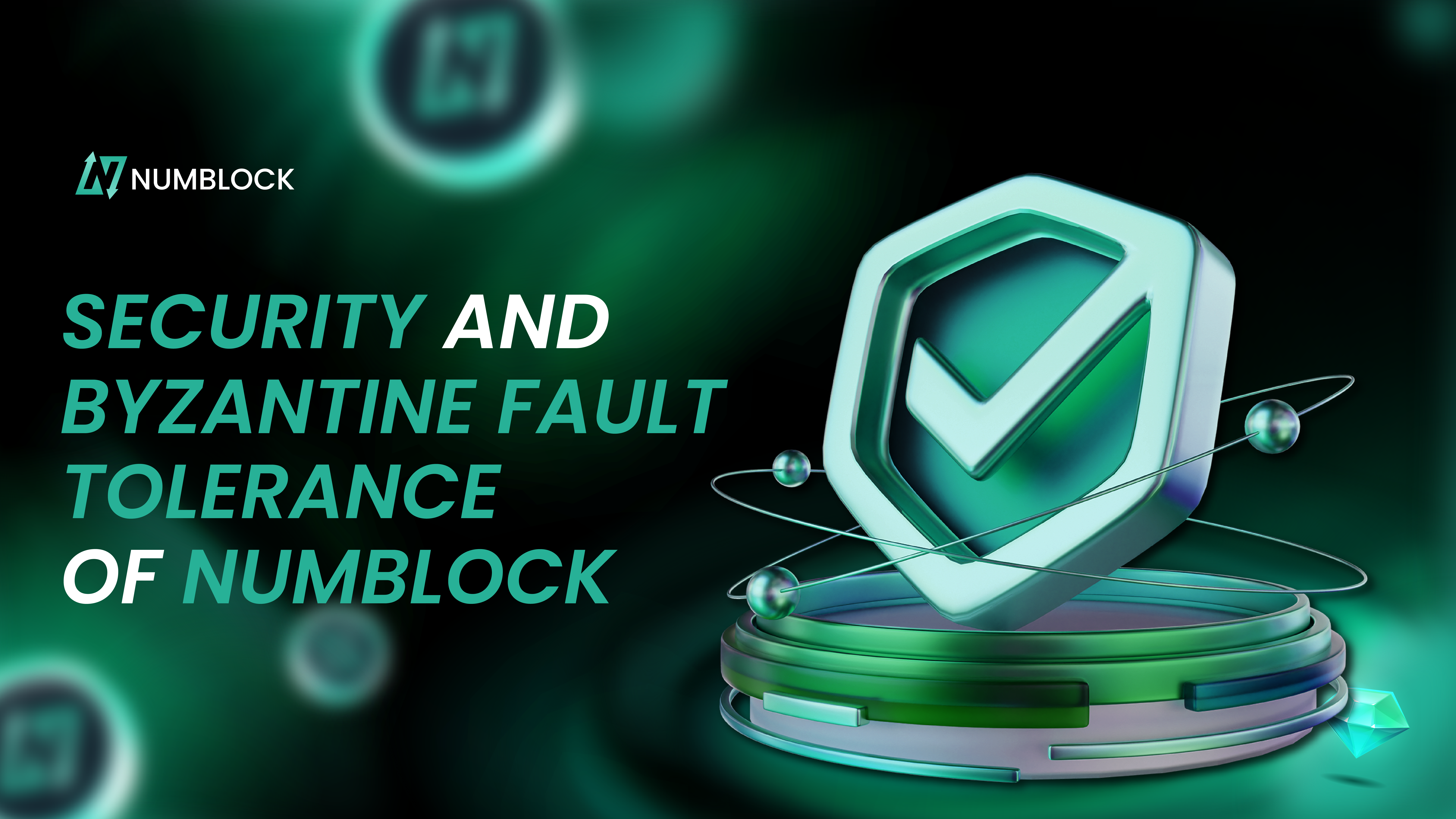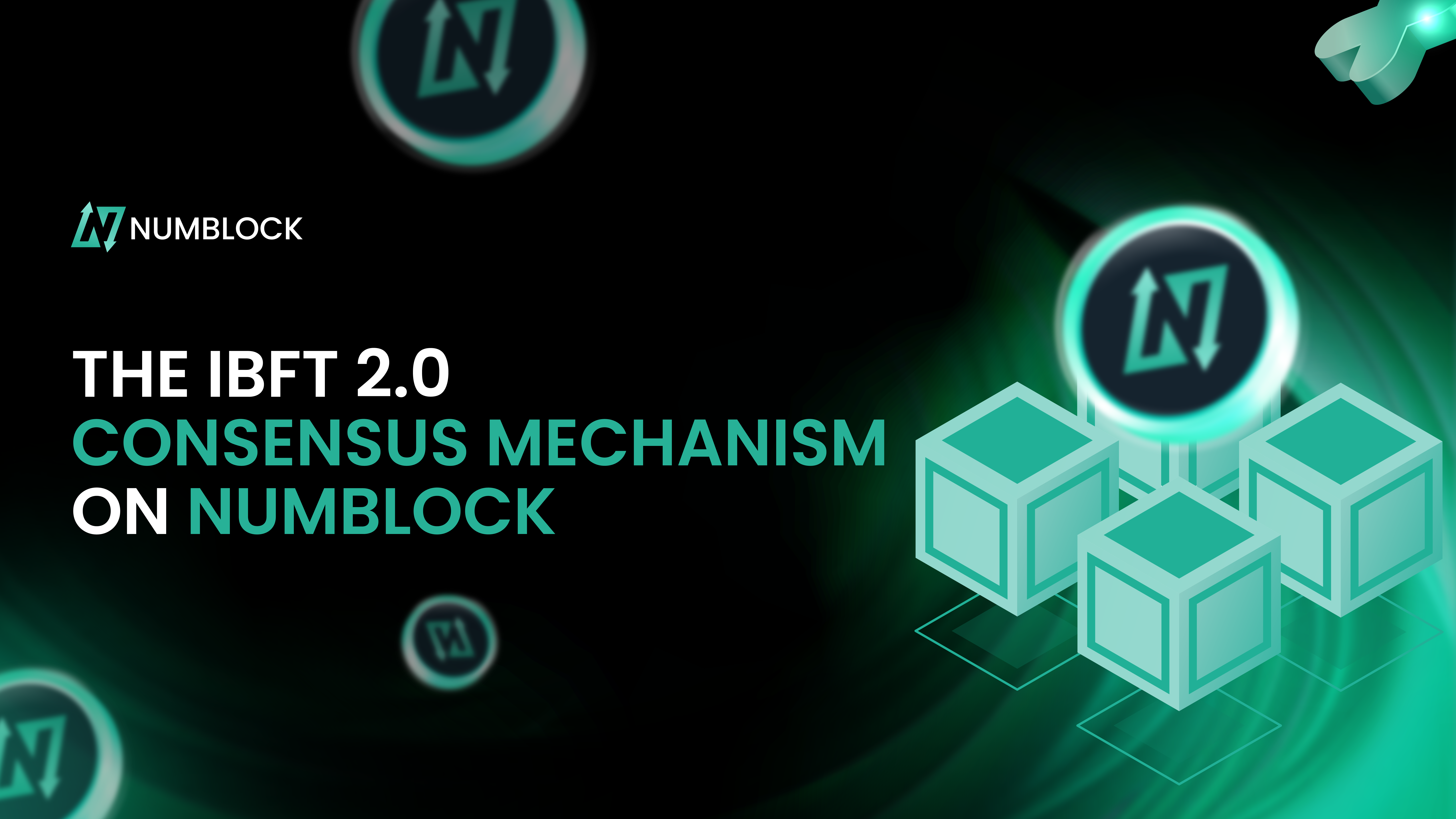Introduction
NumBlock is an advanced blockchain platform designed to support high-performance applications in GameFi and AI. One of the core strengths of NumBlock lies in its robust security measures and Byzantine Fault Tolerance (BFT). This blog will analyze the security mechanisms of NumBlock, particularly its BFT capabilities, and how these features ensure the safety of data and transactions.
What is Byzantine Fault Tolerance?
Byzantine Fault Tolerance is the property of a distributed system to reach consensus and continue to operate correctly even if some of its nodes are malicious or faulty. This concept is crucial in blockchain technology, where decentralized systems must remain secure and reliable despite potential threats from dishonest participants.
Security Measures in NumBlock
- Consensus Mechanism – IBFT 2.0:
- Istanbul Byzantine Fault Tolerance (IBFT) 2.0: NumBlock uses IBFT 2.0, a consensus algorithm designed to handle Byzantine faults. This mechanism ensures that the system can tolerate up to 1/3 of the nodes being malicious or failing, maintaining overall network integrity and security.
- Immediate Finality: One of the key benefits of IBFT 2.0 is immediate finality. Once a block is added to the blockchain, it cannot be reversed or altered, ensuring the immutability of transactions.
- Proof of Stake (PoS):
- Staking: Validators in NumBlock are required to stake a certain amount of NUMB tokens. This economic stake incentivizes validators to act honestly and aligns their interests with the network’s security.
- Penalties for Misbehavior: Validators who act maliciously or fail to meet the network’s performance standards can be penalized by losing a portion of their staked tokens, which discourages dishonest behavior.
- Cryptographic Security:
- Encryption: All data and transactions on NumBlock are secured using advanced cryptographic techniques. This ensures that sensitive information is protected from unauthorized access and tampering.
- Digital Signatures: Transactions are verified using digital signatures, which confirm the authenticity and integrity of the data being processed.
- Decentralization:
- Distributed Network: NumBlock operates on a decentralized network of nodes, reducing the risk of a single point of failure. This distribution enhances the overall security and resilience of the platform.
- Validator Diversity: By involving a diverse set of validators from different geographical and organizational backgrounds, NumBlock minimizes the risk of collusion and centralization.
- Regular Security Audits:
- Code Audits: NumBlock conducts regular security audits of its codebase to identify and fix vulnerabilities. These audits are performed by independent security experts to ensure unbiased assessments.
- Network Monitoring: Continuous monitoring of the network helps detect and respond to potential security threats in real-time, maintaining the integrity and reliability of the system.
Byzantine Fault Tolerance in NumBlock
- Tolerance to Malicious Nodes:
- Resilience: NumBlock’s IBFT 2.0 consensus mechanism allows the network to tolerate up to 1/3 of the nodes being malicious or failing. This high level of resilience ensures that the network remains secure and operational even under adverse conditions.
- Consensus Process: The consensus process involves multiple rounds of communication between validators, ensuring that all honest nodes agree on the state of the blockchain before a new block is added. This reduces the risk of forks and ensures data consistency.
- Fault Detection and Recovery:
- Automatic Detection: NumBlock’s protocol includes mechanisms for automatically detecting faulty or malicious nodes. When such nodes are identified, they are isolated from the consensus process to prevent them from disrupting the network.
- Recovery Mechanisms: In the event of a fault, the network has built-in recovery mechanisms to re-establish consensus and continue normal operations. These mechanisms ensure that the network can quickly recover from failures without compromising security.
Ensuring Data and Transaction Security
- Immutable Ledger:
- Transaction Immutability: Once a transaction is recorded on the NumBlock blockchain, it becomes immutable. This immutability prevents any changes or reversals, ensuring that the transaction history is reliable and tamper-proof.
- Auditability: The immutable nature of the blockchain allows for transparent and auditable records. Users and auditors can verify transactions independently, enhancing trust in the system.
- Smart Contract Security:
- Formal Verification: NumBlock supports the use of formally verified smart contracts, which undergo rigorous mathematical proofs to ensure they behave as intended. This reduces the risk of vulnerabilities and exploits in the contract code.
- Security Best Practices: Developers are encouraged to follow best practices for smart contract development, including thorough testing, code reviews, and the use of established libraries and frameworks.
Conclusion
NumBlock’s advanced security measures and Byzantine Fault Tolerance make it a robust and reliable platform for high-performance blockchain applications. By leveraging IBFT 2.0, PoS, and other state-of-the-art security technologies, NumBlock ensures the safety and integrity of data and transactions. These features not only protect the network from malicious actors but also provide a secure foundation for the future of GameFi and AI applications on the blockchain.




